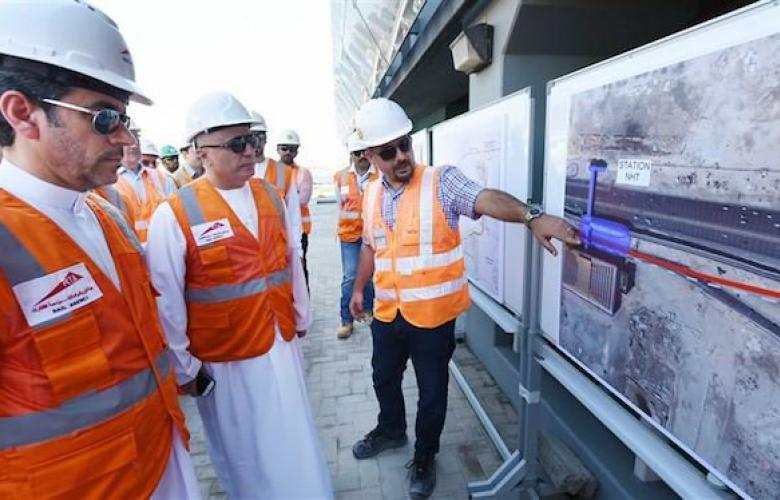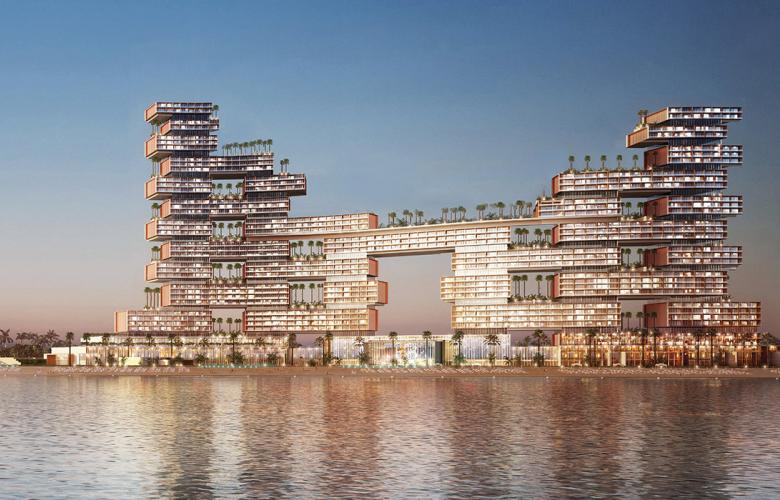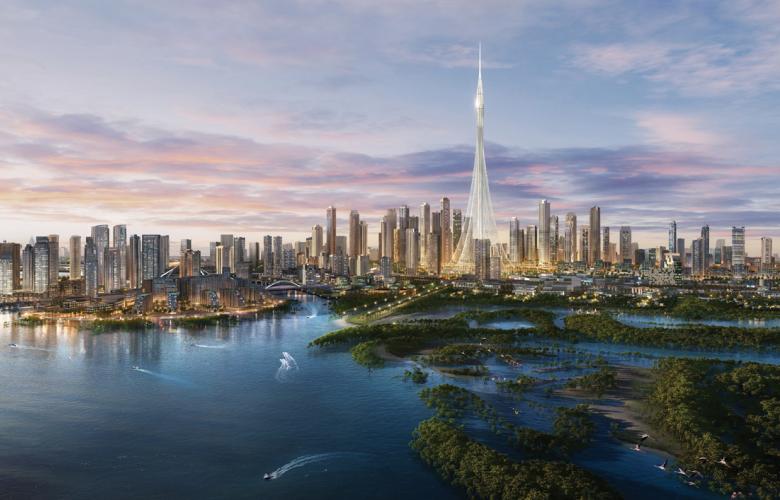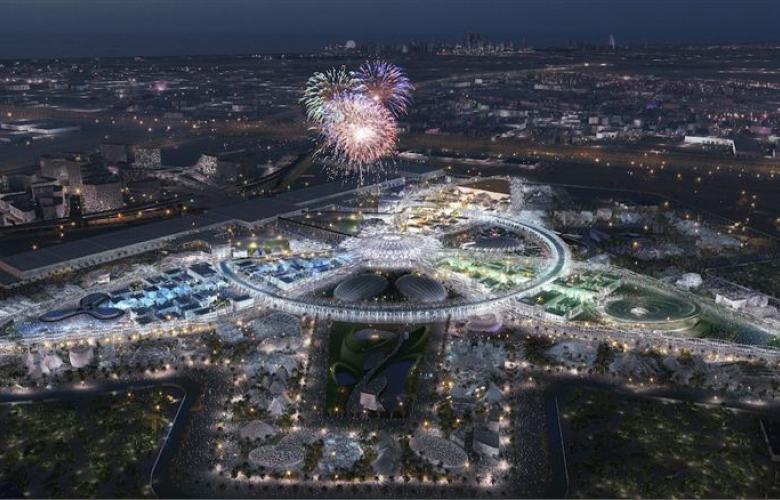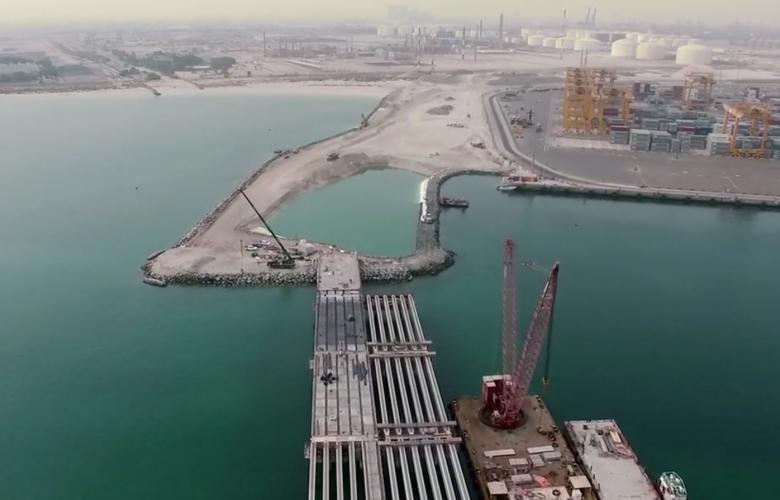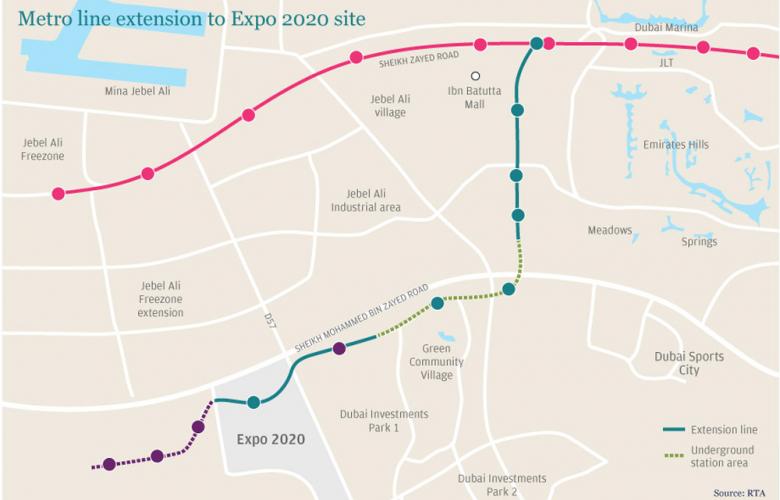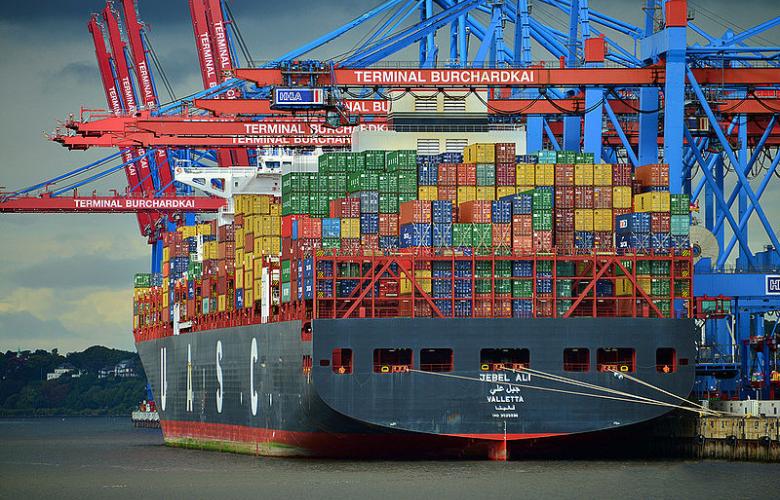The tide of UAE building projects dramatically increases
The tide of UAE building projects dramatically increases
Projects including the Royal Atlantis Resort and Residences and Emaar Properties' Dubai Creek Harbour project show construction plans are not slowing down in the UAE.
Construction of new projects across the UAE is booming, with the value of projects increasing by 8 percent since last month. The BNC Network reports that there are 7,488 residential and commercial building projects currently active, an increase from the 6,020 projects same time last year. The value of these projects is US$228billlion (Dh836.8bn), which include the concept, design, tender and construction phases. This represents 82 percent of total construction but does not include retail, hospitality, healthcare or education projects. BNC Networks said that Dh11bn worth of projects were completed during June, compared with Dh2.05bn a year earlier.
Some of the key projects include Dubai Metro Red Line Extension, a part of the Expo 2020 initiative, Container Terminal 4 of the Jebel Ali Port Expansion project and the Royal Atlantis Resort and Residences located in Palm Jumeirah. Emaar Properties' Dubai Creek Harbour project, as announced by HH Sheikh Mohammed Bin Rashid Al Maktoum in January 2017, is one of the biggest developments currently under construction spanning more than 20 million sq ft. High-rise projects of 15 floors or more make up only 14 percent (1,059) of the buildings under construction which amounts to $100bn, around 44 percent of the total value.
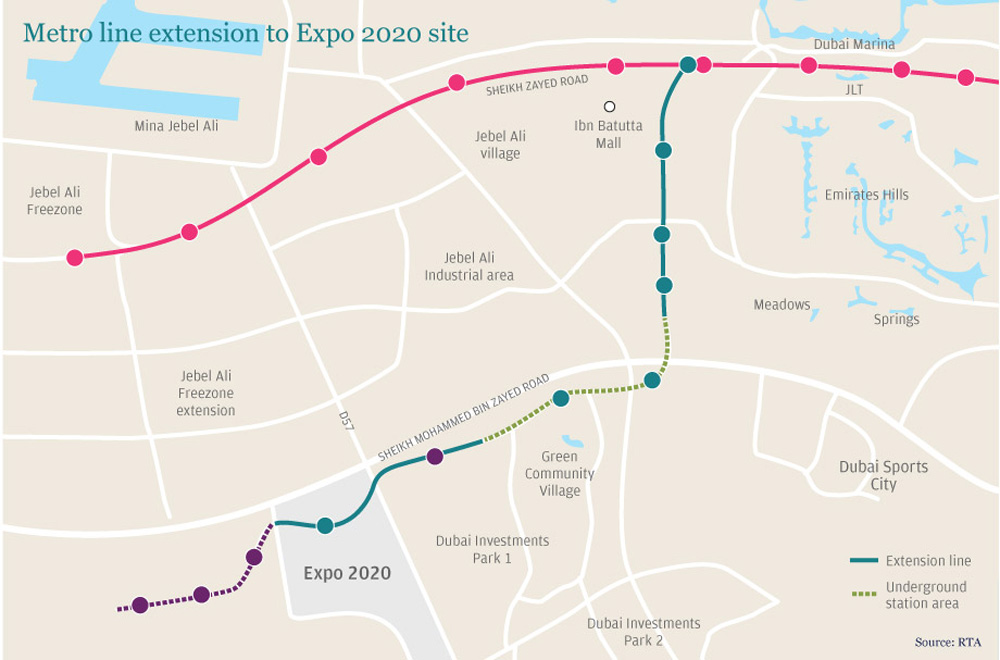
Dubai Metro Red Line Extension
Expo 2020 initiative
- Dh11 billion worth of Expo 2020 contracts reported by The National
Container Terminal 4 of the Jebel Ali Port Expansion project
- DP World
- Is to spend $1.6bn (AED5.88bn) on the project reported by construction week online
Royal Atlantis Resort and Residences
- Developer Krezner
- Designed by KPG Architects
- $1.5bn reported by Gulf Business
Dubai Creek Harbour project
- Emaar Properties
- Tower is valued at $1 Billion reported by The National
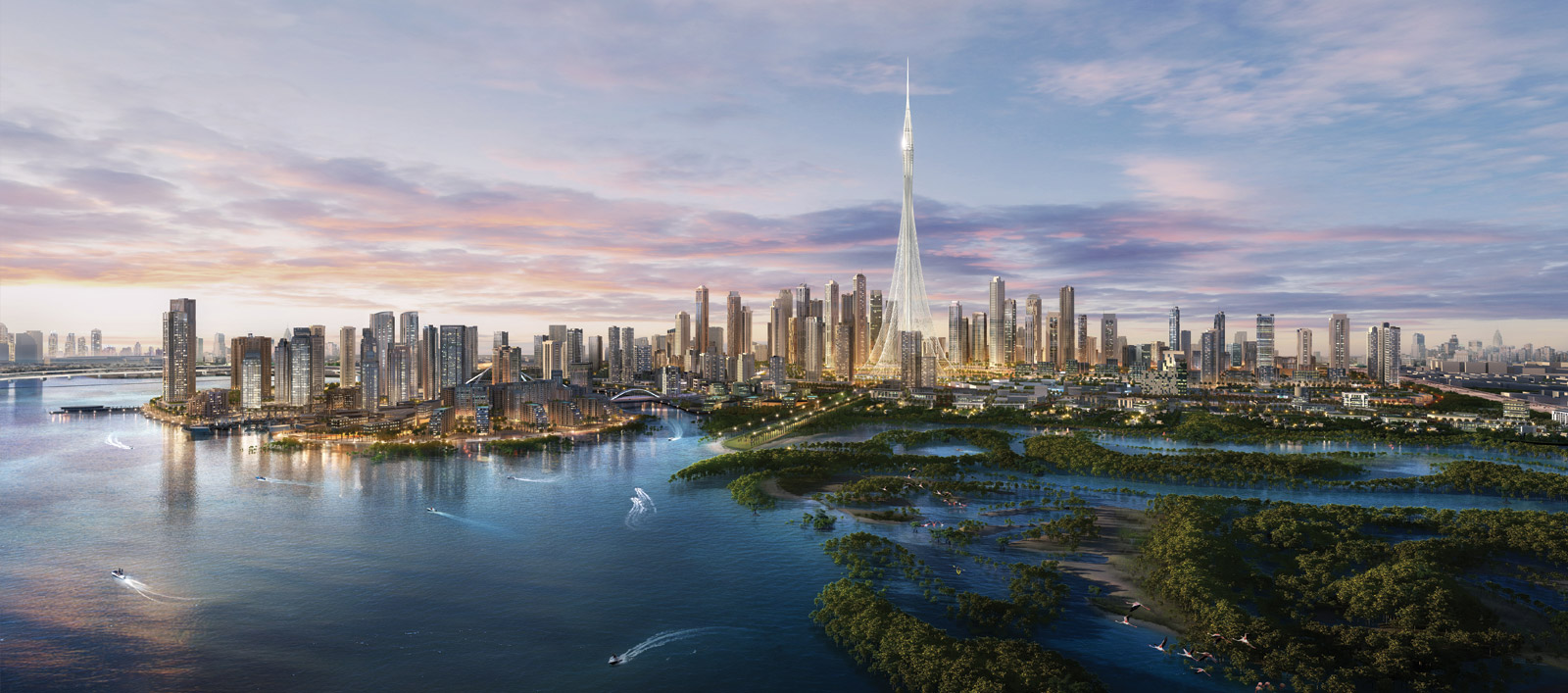
Artist's Impression of the Dubai Creek Harbour development
Emirates 24/7 says the UAE has been diversifying investments in the economy since mid-2014 by bolstering infrastructure, transportation, financial services, trade and construction. “The country’s relatively high level of economic diversification has made it less vulnerable to the shock in oil prices. Diversification efforts have helped the UAE to build up solid financial buffers that allow the government to continue supporting the economy’s non-hydrocarbon activities such as real estate, construction, trade, retail and tourism”, says Seltem Iyigun, Coface Mena economist. He added “the UAE remains a very attractive economy for international investors. Its favourable business environment benefits from high productivity, excellent infrastructures, strong connections to international markets and a dynamic private sector”.
According to Trade Arabia, this boom in construction has a knock-on effect providing opportunities for suppliers. There has been an increase in demand for ceramic tiles, for example, by 70 percent. As almost 40 percent of tiles are imported from overseas, it creates opportunities for international manufacturers to win contracts on prestigious UAE projects. India is the largest importer of tiles to the UAE and it will build on its ties at November’s Vibrant Ceramics Expo and Summit 2017 in Gujarat.
“The strong project pipeline is a reflection of the healthy construction sector, despite [the] weaker global economic growth scenario – an indication that the UAE real estate and construction sectors are defying the global trend,” said Avin Gidwani, the chief executive of BNC Network. “While the lower oil price might have dampened investor appetite, developers and contractors are going ahead with building projects as planned,” he explained. With Dh11 billion worth of construction contracts awarded at the Expo 2020 site, “a number of these buildings are being developed to meet the anticipated rush during Expo 2020.” According to Dubai Tourism Vision 2020, the city needs to double its supply of hotel rooms to about 164,000 by 2020, as it prepares to host the 25 million visitors expected during the course of the Expo.
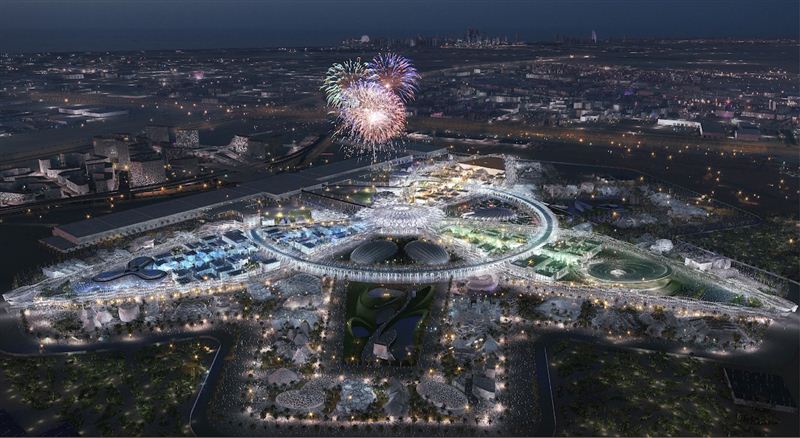
Artist's Impression of the The Expo 2020 Dubai site
See also:
Inside the Dubai Expo 2020 Opportunity Pavilion
Cavendish Maxwell release Q2 2017 Dubai and Abu Dhabi Residential Reports
